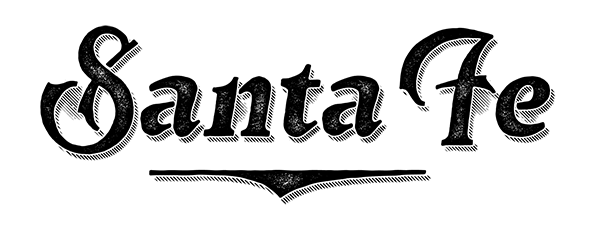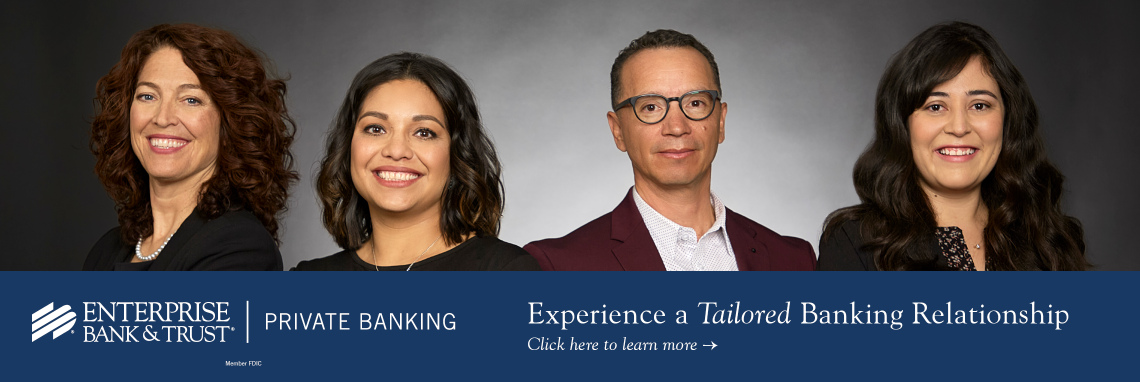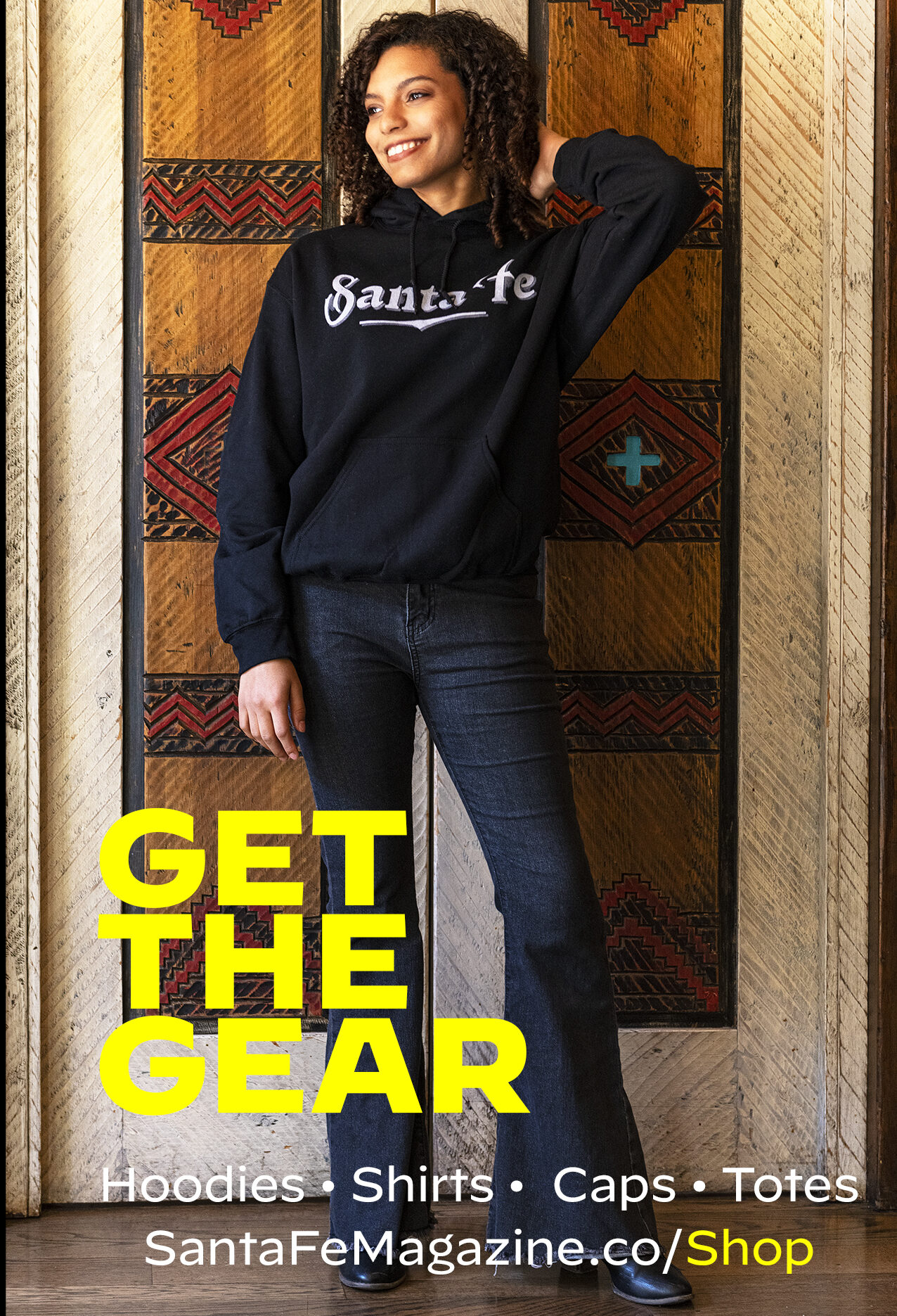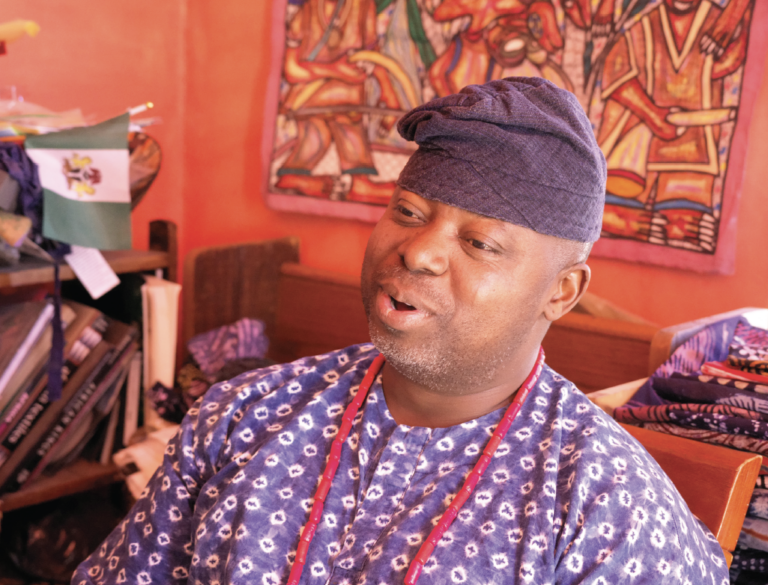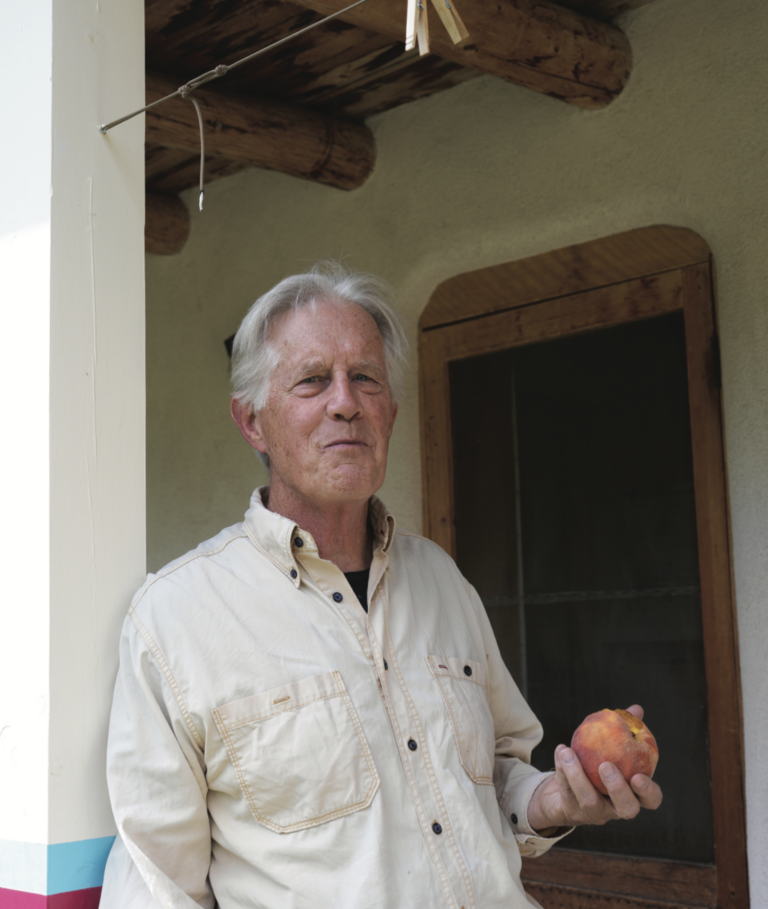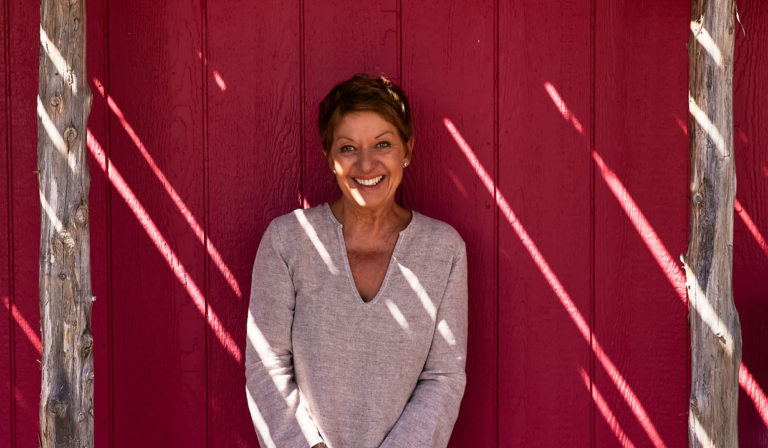EDIBLE MAGAZINE is a love story between the husband and wife publishers and the subject – the story of food in New Mexico. They tell this story every other month through the people who grow it, prepare it, serve it and eat it…literally, the whole enchilada.
Walt and Stephanie came to publishing from the film business, and it’s still a little baffling to them how they ended up doing a magazine. They were late startersas foodies and magazine entrepreneurs but, luckily, are quick learners. They have the touch. And the taste.
I met them on a wet, snowy day in Santa Fe. Our conversation was warm, spontaneous, with levity, kind of like a really good family meal.
You guys started out in film.
Stephanie: Yes, we both came from the film industry. We were living in LA, even though we’re both from Albuquerque. We met in LA, had that Albuquerque connection. He was working in post-production. I started in the film industry as a model maker, like making practical effects and blowing them up, and did that for a year.
The food connection came further down the line. We moved back to New Mexico to raise family, because it’s cheaper than LA and that crazy lifestyle. But Walt kept working in the film industry. He was traveling constantly and never home. And maybe that’s why we like working together so much now, because we spent a lot of time not together in the first parts of our marriage. He went to New York and became a foodie, spending nine months there.
Walt: Yeah, in 2009, I ended up getting a film job in New York City, and Steph stayed here in Albuquerque. I was watching the Travel Channel or the Food Network, and I’d see these restaurants that were in New York, and I’d be like, Oh, I’m going to try that one! I would just go to these restaurants in New York City and try it. And then when Steph would come with the kids during breaks, usually two weeks at a time, she did the same thing. We both kind of got hooked on the foodie scene.
In Edible, you’re interested in the heroics of the people you admire; so what constitutes a hero?
Walt: I really admire the farmers who are out there working their fields. They love what they do. They know they are never going to get rich. They just love it and they want people to have access to really good food.
And we meet the chefs. We meet the farmers. And that’s when we discovered the relationships between chefs and farmers. Having that relationship between chef and farmer is kind of cool, too, sometimes because chefs can actually go to a farmer and say, hey, I was wondering if you could maybe grow this certain item for me. And a lot of times the farmers will try and accommodate and say, I can try growing that.
Stephanie: And whether they realize it or not, they’re such an integral part of the community that we live in and celebrating that, that’s what we’re doing. We’re celebrating their stories. Every single time I do a photo shoot or meet these people, I am reminded of why I continue to do what I do. But every time I go out into the field and meet people, I’m like, yep, I am never going to stop doing this! This is why we got into this, because I was ready to do something that would make a difference in my community.
You guys are obviously working against the idea that print publishing is over.
Stephanie: Digital is so much all the time, nonstop. And I get why everybody thought there was a shift towards print being dead. But the reality is that everybody likes the tactile – they want to touch and hold something. They just love the way it feels. We walk into people’s houses, and they have their whole little library of Edible magazines on their shelf or on their coffee tables.
Walt: And I love it when people tell us, I keep every issue.
Stephanie: I have always loved magazines. Ever since I was a kid, I had boxes of magazines that I tore pages out of. I was always fascinated by the amount of knowledge you could get in a little small thing compared to reading a big fat novel. So when I look back on it now, it’s kind of funny. It’s almost like, oh, well of course this is where you landed!
Do you ever have like dark moments? Like, why am I doing this? This is so hard.
Walt: Oh, yeah.
Stephanie: Sure. I’m like, God, maybe I should just go get a marketing job!
Walt: I have told myself maybe I should go back to film, go back to the 18-hour days of working on a movie where the timeline is crazy.
I would think that there’s a tension between your subjects and your advertisers. Do you ever feel pressure from advertisers?
Stephanie: For the most part it’s been pretty natural, I would say. It’s not like McDonald’s is knocking on our door asking to advertise.
Walt: And truthfully, as hard as it would be to say no, because they’d probably have a big check, we would tell them, sorry, we cannot take your advertising because we are all about local food, unless you guys are buying beef from a local rancher.
Stephanie: Because we are a magazine that supports local, our advertising base is local, and that can be retail or food. And for whatever reason with our Edible Communities, the 80 publishers, we’re probably on the side of having the majority of our advertising base being restaurants more so than the rest of them.
Walt: We should explain how the Edible Communities work. It’s actually a license. There’s 80 of us nationwide, but we’re all independent owners. Every single one of us focuses on our local food shed or local territories.
Stephanie: Everyone tells that story differently depending on where they are. So, one might focus more on recipes, like Boston Edible – half of their content is recipes. And with others, a farmer owns the publication, or a restaurateur owns the publication. You put all 80 publications on a table and you’re like, Oh, yeah. I see how they’re all the same. And then soon as you open ‘em up, you start to see all the differences because everybody has the autonomy to tell the story.
This is such a stupid question, but I have to ask it. Why do people love food? Some people are foodies, some are not. What makes a person interested in it?
Stephanie: The story. There’s a story behind food. Breaking bread together. Anybody that grew up in a family where the table was the gathering spot either remembers it as my mom was a terrible cook, or my mom was an amazing cook, and that determines their path. I want better food, or I don’t care about food. We know people who absolutely could get their nourishment from hot dogs and chips for the rest of their lives and don’t get any pleasure from food.
Walt: My brother.
Stephanie: Your brother’s a great example.
And some people find it later in life. I mean, I grew up in a house where my grandma was what I considered a great cook, but she was a cook of the 50s and most of her stuff was convenience food. And I didn’t discover real food until I was 21 when my friends forced me to eat calamari for the first time. And I was like, Oh, my God. This is amazing! What have I been missing my whole life eating mac and cheese and lasagna? This is totally different.
Walt: I’d liken it to that first golf shot that you hit perfectly that one time. You’re playing golf and then you suck, and then suddenly you hit it perfectly and you’re addicted to golf.
When we came home from all of the great food in New York, that’s when we had made the decision of no more…
Stephanie: No more wasted calories.
Walt: We’re going to start eating good food. We would take pictures of ‘em and post ‘em on Facebook. And this is kind of how we got started.
I had a chef friend who lived in Florida, and she was seeing my pictures. She said, have you ever thought about starting an Edible publication? And I was like, I don’t know exactly what you’re talking about or what you mean. And we went to Whole Foods and picked up Edible Sarasota. As soon as I saw it, I was like, Yep! That’s what I’m doing!
How does the ecosystem of food in New Mexico affect what you do?
Stephanie: It is a tough place to grow food. It’s not easy, but you’ve got a lot stacked against you, and that stack gets higher and higher every year with climate change. But we have such a unique and special cuisine and culture here that most of the world has no clue about. I’ll never forget when Dan Barber, the Blue Hill at Stone Barns chef came to sign his new book at Bookworks. I remember he said, No place in America has a cuisine. The only place that maybe comes close is the South. You should have heard that room! They were like, Have you ever been to New Mexico? He was like, No, this is my first time here. And we’re like, Are you kidding me? We were like, You need to spend some time here before you make that statement, buddy.
Walt: I think it’s the terroir of the land. It’s the growing conditions. The soil is not the most nutrient-rich soil. We’re a desert and we also have harsher conditions as far as getting a lot of moisture. So, planting and farming here is a lot tougher for the farmers. But they also have learned how to do it over millennia.
Stephanie: There is something very distinct about New Mexican food. It’s the Native American and Spanish Mexican influence that brought all those cultures together and created something that no one else has. You can go to Oklahoma and eat Native American food. It isn’t gonna be the same as the Native American food that you eat in New Mexico.
Walt: We are passionate about our food.
Stephanie: We are passionate people and we are so spirited. You can go to another state and they’ll root for their football team and stuff. But I feel like people don’t have the pride that New Mexicans have.
Maybe you have to live here to understand it.
Walt: It’s funny both of us when we were younger, we just wanted to get out, explore. And I’m glad we did, because my going to Los Angeles and getting into the film industry provided opportunities that I probably would never have. I got to travel the world, got to see things that we will see again. I remember the day I told Steph, maybe we should move back to New Mexico, and she just like perked right up. Really? She started packing.
Learn more at EdibleNM.com
Photo SFM
